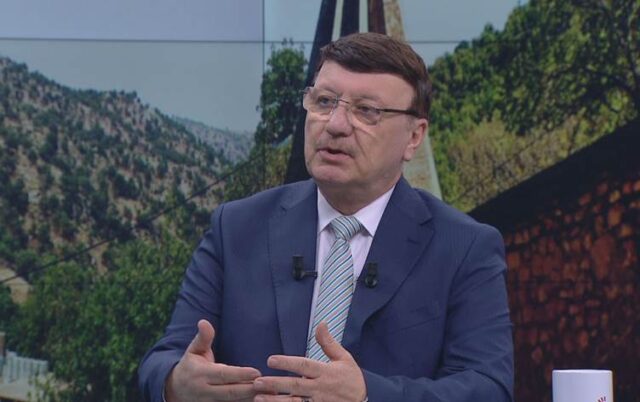Sema
The families of 32 Yazidi victims of the genocide committed by ISIS in 2014 received their remains at the forensic office in Mosul on Friday. The bodies will be buried today, Saturday.
Among the victims was the father of Ikhlas Khidr and her two brothers, who were buried by ISIS in 2014 in the village of Qani, in the Sinjar district.
Ikhlas Khidr, the daughter of one of the victims, told Rudaw Media Network: “Many of our people are still missing, and we have no information about them. They are reopening our wounds. I call on the government to quickly return the remaining of us.”
“Al-Hol Camp Management is Uncooperative”
In a related matter, the Yazidi Affairs Advisor to the Kurdistan Region Presidency criticized the management of the Al-Hol Syrian camp on Saturday for its “lack of cooperation” in facilitating the release of the large number of Yazidis held there, mostly families suspected of belonging to ISIS.
Khayri Bozani told Rudaw Media Network that no rescue operations had taken place since the fall of Bashar al-Assad’s regime at the end of 2024.
He added, “We don’t even know who we are negotiating with at this stage… but I hope we can find a way to do something.”
ISIS militants had abducted more than 6,000 Yazidis, mostly young women and children, when they seized Sinjar in 2014, and around 2,600 individuals are still missing. Bozani believes most of them are in the Al-Hol camp.
The camp houses tens of thousands of displaced people, including families of ISIS fighters, and has long been a source of security and humanitarian concerns.
The Syrian Democratic Forces (SDF) control the sprawling facility, but it is difficult to secure, and it has been referred to as a “ticking time bomb.”
Bozani accused the SDF of not cooperating in efforts to locate and release the Yazidi captives.
When ISIS invaded the Yazidi stronghold in Sinjar, Nineveh province, more than 5,000 people were killed within a few weeks, mostly older men and women, who were buried in mass graves.
Iraqi authorities have been exhuming bodies from the mass graves and identifying them in batches over time.
On Friday, the remains of 32 Yazidi genocide victims were handed over to their families at the forensic office in Mosul, in preparation for a scheduled burial ceremony on Saturday.
Bozani stated that the exact number of Yazidi remains still awaiting identification in Baghdad is “unclear” due to a lack of adequate DNA testing facilities.
He added, “DNA testing is one of the biggest obstacles to identifying the victims.”
According to him, “There is only one laboratory for DNA testing in Iraq that the government relies on, and it is not exclusively for Yazidi victims but for all the atrocities committed in Iraq.”
Regarding the new general amnesty law in Iraq, Bozani expressed concerns about the possibility of the release of individuals who committed violations against Yazidis.

